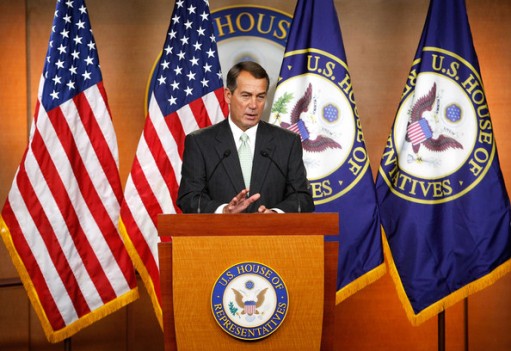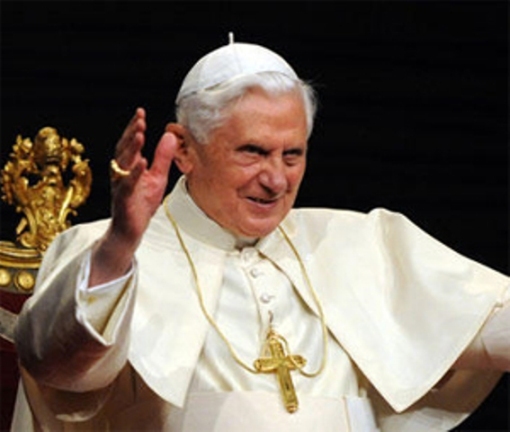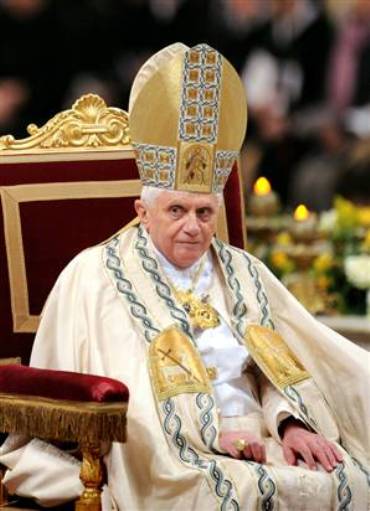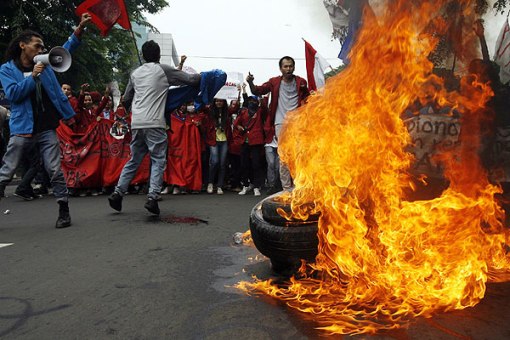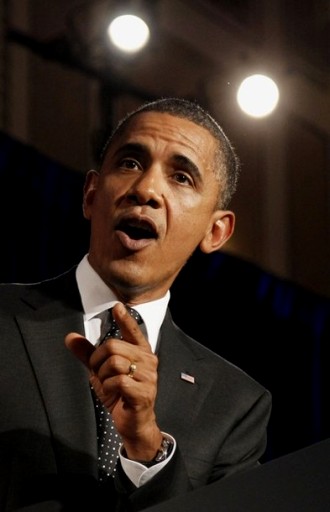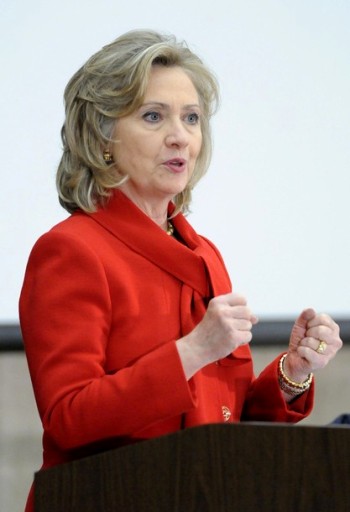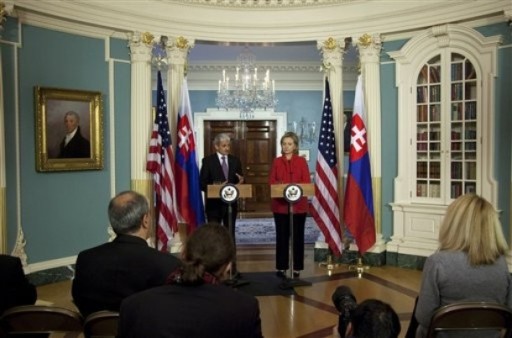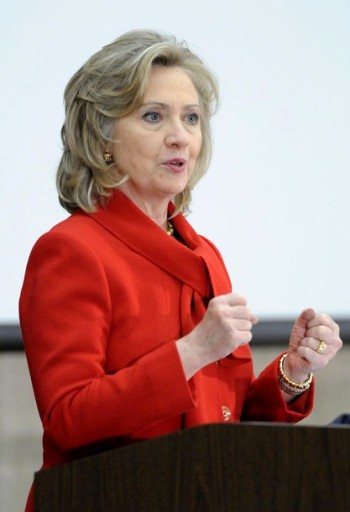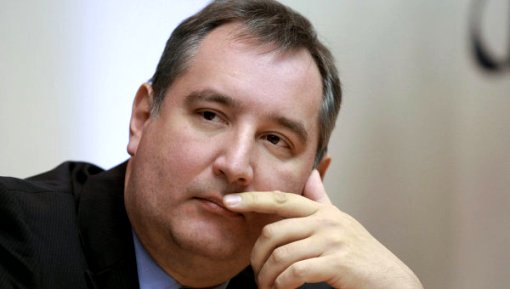10/20/2010
Boehner Congratulates Archbishops Burke & Wuerl on Cardinal Appointments by Pope Benedict XVI
October 20, 2010. Washington (KATAKAMI / GOP LEADER.GOV) — House Republican Leader John Boehner (R-OH) today offered his congratulations to U.S. Archbishop Raymond L. Burke, prefect of the Apostolic Signature, and U.S. Archbishop Donald W. Wuerl of Washington, after Pope Benedict XVI announced their appointments to the College of Cardinals:
“In Archbishops Burke and Wuerl, Pope Benedict has selected men of God and loyal servants of the faithful to help lead our church around the world. I am confident that these men of generous spirits and immense gifts will strengthen the bonds of ecumenical friendship in America, continuing the work of so many to protect life and lift up the hearts of the lonely, discouraged, and oppressed. I congratulate them both.”
Pope says Church’s mission a duty of every Catholic
Vatican City, Oct 20, 2010 (CNA/EWTN News).- Pope Benedict XVI said that World Mission Sunday is an opportunity for Catholics to to reflect on the Church’s mission to bring Christ’s message and love to “every people, culture, race and nationality.”
Authentic Christian mission recognizes that God’s love cross all geographical borders and boundaries of culture, the Pope said in a message prepared for the annual day of prayer and promotion of the Church’s missionary activity, to be celebrated this year on Oct. 24.
“The Father calls us to be sons and daughters, loved in the beloved Son, and to recognize that we are all brothers and sisters in (Christ), who is the gift of salvation for humanity,” the Pope reflected.
The Pope said that while “discord and sin” divide humanity, members of the Church are called to bear witness by the example of their lives and to promote a “new humanism founded on the Gospel of Jesus.” The demonstration of authentic love, he said, gives credibility to the words of the Gospel, both in its historic centers and in remote lands.
This proclamation of God’s love in Christ, he emphasized, is “a duty of the whole Church” which is “by her very nature missionary.” While some individuals experience a particular call to proclaim this message as clergy, catechists, or lay missionaries, others participate in the universal mission to “offer signs of hope and to become universal brethren.” In all circumstances, he said, “the Gospel is a leaven of freedom and progress” and “a source of brotherhood.”
Pope Benedict stressed that the task of foreign missions “cannot be fulfilled without a … community and pastoral conversion” involving “all diocesan and parish communities.” The local church’s celebration of the Eucharist, he explained, both calls and enables its members “to promote the proclamation of the Gospel in the heart of … every people, culture, race and nationality in every place.”
Pope Benedict expressed special gratitude of “missionaries who bear witness to the coming of the Kingdom of God in the most remote and challenging places, often with their lives.” Describing them as the “vanguard of the Gospel’s proclamation,” he urged all members of the Church to support the work of the Pontifical Missionary Societies through prayer and the gift of their resources.
Pope names 24 new cardinals
October 20, 2010 VATICAN CITY (KATAKAMI / MSNBC.COM / AP) — Pope Benedict XVI has named 24 new cardinals, including a large number of Italians, two Americans and prelates for key posts in Europe, Latin America, Asia and Africa.
The new cardinals include Archbishop Donald Wuerl of Washington, D.C., and Archbishop Raymond Burke, an American who leads a Vatican court and has been sharply critical of the Democratic Party in the United States for its support of abortion rights.
The pope made the announcement Wednesday, putting his mark on the body that will elect his successor.
Other key posts were Warsaw, Munich, Kinshasa, Quito, Lusaka, Zambia, and Sri Lanka.
Protests on SBY anniversary
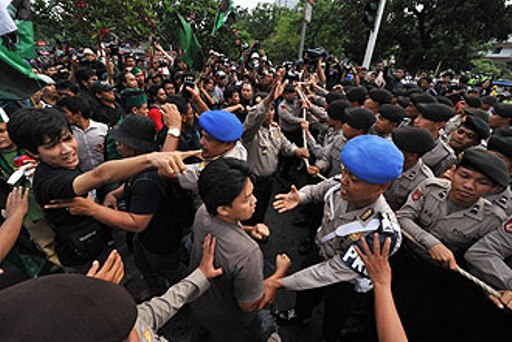
Police blocks anti-government demonstrators outside the presidential palace in Jakarta. -- PHOTO: AFP
October 20, 2010 JAKARTA (KATAKAMI / THE STRAITS TIMES / AFP) — THOUSANDS of protesters took to the streets in Indonesia on Wednesday to mark the first anniversary of the swearing in of President Susilo Bambang Yudhoyono.
Anti-government rallies were staged in Jakarta, Bandung, Surabaya, Palu and Bogor, where students reportedly clashed with police. Almost 20,000 police were on standby in the capital to deal with unrest, the Antara state news agency reported, but there were no reports of violence in the city.
About 300 protesters gathered in front of the presidential palace in Jakarta, shouting ‘SBY has failed, SBY has failed’. ‘He has failed to eradicate corruption,’ said Rudi Daman of a group called the People’s Defender Front.
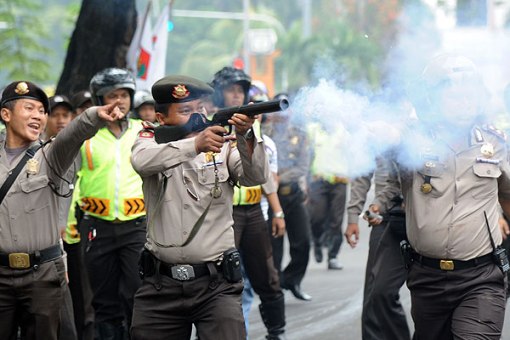
A policeman fires tear gas over anti-government protestors during clashes near the presidential palace. -- PHOTO: AFP
Demonstrators threw Molotov cocktails at police who responded with tear gas in Makassar, South Sulawesi province, on Tuesday as Dr Yudhoyono visited the town.
The president, a centrist ex-general, warned protesters to express dissent within the limits of the law and not to try to overthrow the government, a loose coalition of nationalist secular and Islamic parties.
‘The democracy we all want is not one leading to a sea of slander and anarchy, which can damage the things that we have built,’ Dr Yudhoyono told Elshinta radio. ‘As a country, the world will see whether a nation’s democracy is ethical and civilised or not.’ –
AFP
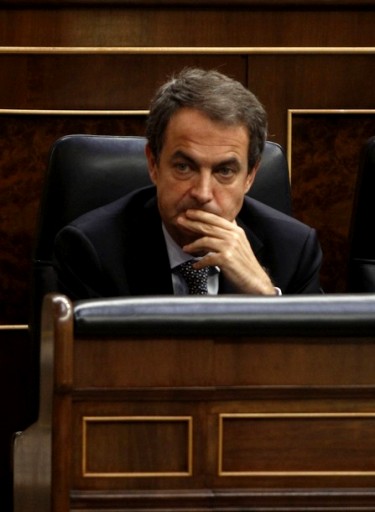
Spain's Prime Minister Jose Luis Rodriguez Zapatero gestures at the Spanish parliament before a debate on the 2011 budget in Madrid October 19, 2010. (Getty Images / REUTERS/Andrea Comas )
October 20, 2010 (KATAKAMI / FRANCE 24 / AFP) – Spanish Prime Minister Jose Luis Rodriguez Zapatero will announce a “broad reshuffle” of his cabinet, the government said on Wednesday.
The Spanish leader is shaking up his team after securing enough support to narrowly pass a cost-slashing budget through parliament. A budget defeat would have forced him into early general elections.
Zapatero will drop Foreign Minister Miguel Angel Moratinos, replacing him with Health Minister Trinidad Jimenez, and name his Interior Minister Alfredo Perez Rubalcaba as deputy prime minister, El Pais said in its online edition.
“There will be a broad reshuffle of the government,” said a spokesman for the prime minister’s office. He declined however to give any details.
Zapatero will meet in the morning with King Juan Carlos I to inform him of the ministerial changes and then announce the new government to the press, he said.
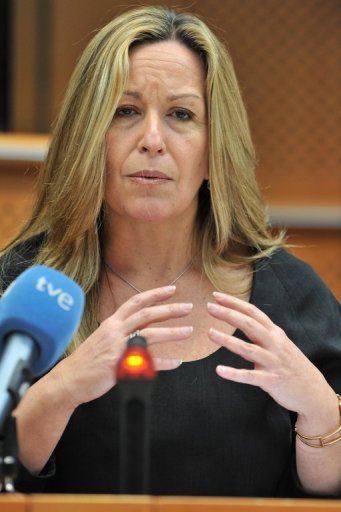
Spanish Health Minister Trinidad Jimenez, seen here in January 2010, is set to replace Miguel Angel Moratinos as Foreign Minister, according to the online edition of El Pais. Spanish Prime Minister Jose Luis Rodriguez Zapatero will announce a "broad reshuffle" of his cabinet, the government has said.
Zapatero has slumped in the opinion polls as he pushed through painful austerity measures and labour market reforms, and advocated deep budget cuts to avoid a Greek-style debt crisis.
The major challenge for him now is passing a budget that pledges to cut spending next year by 7.9 percent to 122 billion euros (170 billion dollars).
There had been some doubt as to whether the government could pass the budget as the economic measures cost the Socialists the support of smaller parties further to the left.
General elections are not scheduled until 2012 but failure to pass the budget, scheduled for a first reading as early as Wednesday, would almost certainly have forced an early election.
Zapatero apparently secured the budget’s passage on Monday by winning the support of a tiny regional party, the Canary Islands Coalition with two seats in the 350-seat parliament.
The government sealed a similar deal on Friday with the centre-right Basque Nationalist Party, which has six seats in the assembly.
With 169 seats in Spain’s 350-member assembly, Zapatero’s Socialists are seven seats short of a majority and have to pass legislation on a vote-by-vote basis.
Obama backs Venezuela’s right to nuclear energy
October 20, 2010. WASHINGTON, USA (KATAKAMI / ASIAONE) – US President Barack Obama said Tuesday he had no objection to Venezuela developing nuclear power for civilian energy purposes, days after Caracas and Moscow signed a landmark deal.
“We have no incentive nor interest in increasing friction between Venezuela and the US, but we do think Venezuela needs to act responsibly,” Obama told Spanish media at the White House.
“Our attitude is that Venezuela has rights to peacefully develop nuclear power,” he said, adding that as a signatory of the nuclear non-proliferation treaty it must also meet its obligations not to weaponize those systems.
Venezuelan President Hugo Chavez clinched a deal in Moscow on Friday that will see Russia build and operate the first nuclear power plant in his country.
Closer ties between Moscow and Caracas – Chavez has bought more than US$4 billion (S$5.26 billion) of weapons from Russia and promised to give it greater access to Venezuelan oil fields – are being closely watched in Washington.
In an apparent reference to the United States, Russian President Dmitry Medvedev acknowledged that the move to build the nuclear research facility could concern some countries.
“I do not know if anyone is going to shudder at this. The president (Chavez) said there are going to be states that have different emotions about this. But I wanted to say our intentions are clean and honest.”
The agreement was signed by the head of Russia’s atomic energy agency Sergei Kiriyenko and built on a plan agreed by Prime Minister Vladimir Putin with Chavez during a visit to Caracas in April.
Further details were not given about the timing or cost of the construction of the station, but Medvedev said diversifying energy sources was a priority even for a energy-rich country like Venezuela.
Obama said Tuesday that the United States would continue to push for human rights and political and media freedoms in Venezuela as he urged the Venezuelan people not to believe their leader’s anti-American propaganda.
“The antagonism between our two countries is not inevitable,” he said.
“We want the people of Venezuela to be thriving economically, we also want the people of Venezuela to have a voice in their own government, that’s something we cannot impose externally.”
In his latest sparring with Washington, Chavez officially informed the United States last month that he would not accept Obama’s designated ambassador to Caracas.
The Venezuelan leader has strenuously objected to the appointment of veteran diplomat Larry Palmer after he sharply criticized the Chavez government in his Senate confirmation hearings.
US, Pakistan Convene Strategic Dialogue
October 20, 2010 (KATAKAMI / VOA / REUTERS) — U.S. and Pakistani officials are meeting in Washington Wednesday to begin a third round of a strategic dialogue started earlier this year.
Secretary of State Hillary Clinton and her Pakistani counterpart, Shah Mehmood Qureshi, will lead the three days of talks.
The U.S. is expected to offer Pakistan as much as $2 billion over five years to help fight insurgents along its border with Afghanistan.
The offer is seen as part of an effort to ease tension stemming from recent NATO and U.S. military strikes on the Pakistan side of the border. U.S. impatience with Pakistan’s hesitance to fight insurgents has also stirred tensions.
White House spokesman Robert Gibbs said Tuesday that Pakistan is beginning to cooperate more and that this week’s meetings will be an opportunity for U.S. officials to outline to the Pakistanis what else must be done.
U.S. President Barack Obama is also holding talks on Pakistan and Afghanistan Wednesday with his security advisers at the White House.
President Obama’s closed-door discussions are likely to cover Washington’s support for the Afghan government’s recent efforts to reach a peace deal with the Taliban, as well as U.S.-Pakistan relations.
The three-day U.S.-Pakistan meetings will include talk of refocusing U.S. civilian aid to help Pakistan rebuild after its devastating floods. The defense and military chiefs of the two countries will also take part in the strategic dialogue.
Tensions erupted last month after a NATO helicopter mistakenly killed two Pakistani soldiers along the Afghan-Pakistani border.
Pakistan responded by closing a key crossing point for NATO supply convoys into Afghanistan, an action that exposed the trucks to attacks by Pakistani militants.
The United States apologized for the deaths, and Pakistani authorities reopened the crossing after ten days.
The U.S.-Pakistan strategic dialogue began in Washington in March and continued during Secretary Clinton’s visit to Pakistan in July.
Some information in this story was provided by Reuters.
Photostream : US Secretary of State Hillary Clinton meets Slovakian Foreign Minister Mikulas Dzurinda
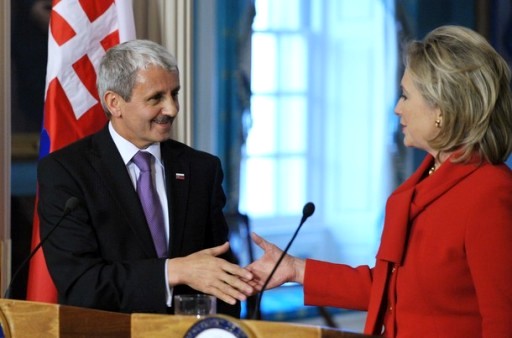
US Secretary of State Hillary Clinton and Slovak Foreign Minister Mikulas Dzurinda shake hands at a joint press conference following a bilateral meeting October 19, 2010 at the State Department in Washington. (Photo : MANDEL NGAN/AFP/Getty Images)
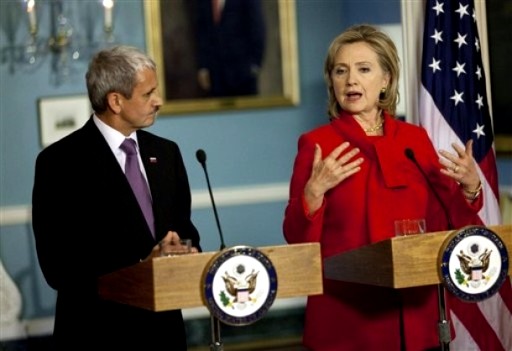
Secretary of State Hillary Rodham Clinton, right, speaks at a news conference with Slovakian Foreign Minister Mikulas Dzurinda at the State Department on Tuesday, Oct. 19, 2010 in Washington. (Getty Images / AP Photo/Evan Vucci)
Photostream : Venezuelan President Hugo Chavez meets Iranian President Mahmoud Ahmadinejad
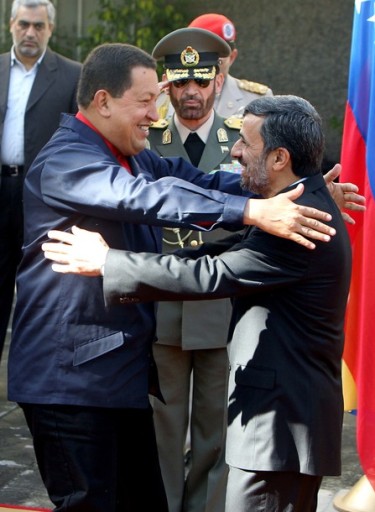
Iranian President Mahmoud Ahmadinejad (R) greets his Venezuelan counterpart Hugo Chavez during a welcoming ceremony in Tehran on October 19, 2010. (Photo : ATTA KENARE/AFP/Getty Images)
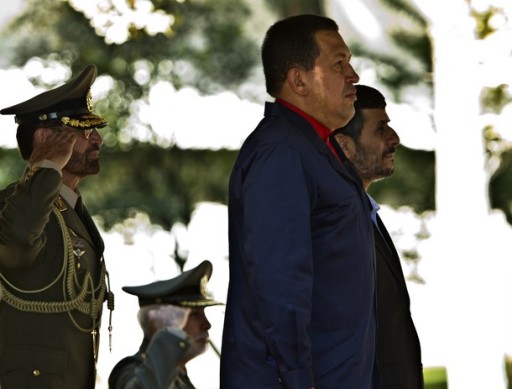
Iran's President Mahmoud Ahmadinejad (R) and Venezuela's President Hugo Chavez stand at attention during the playing of the national anthems during an official welcoming ceremony in Tehran October 19, 2010. (Getty Images / REUTERS/Raheb Homavandi )
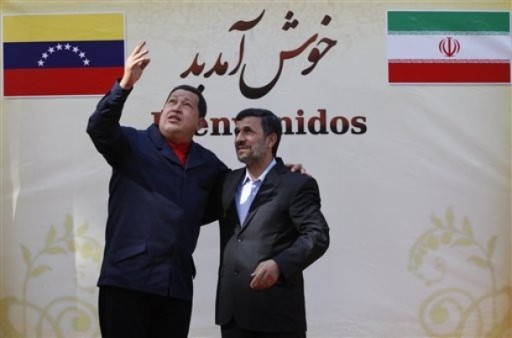
Venezuelan President Hugo Chavez, left, gestures, as he is welcomed by his Iranian counterpart Mahmoud Ahmadinejad, during an official welcoming ceremony, in Tehran, Iran, Tuesday, Oct. 19, 2010. Venezuelan President Hugo Chavez is holding talks with Iranian leaders expected to focus on boosting cooperation between the countries' oil, gas and petrochemical industries. Writing on banner at background in Farsi and Spanish reads "Welcome". (Getty Images / AP Photo/Vahid Salemi)
Russia’s Medvedev to attend NATO summit next month
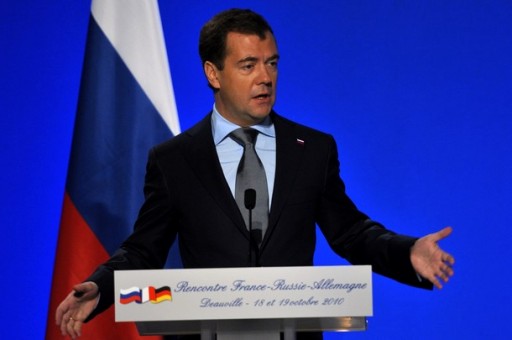
- Russia's President Dmitry Medvedev speaks at a news conference also attended by France's President Nicolas Sarkozy and and German Chancellor Angela Merkel in Deauville October 19, 2010. Medvedev said after talks with Sarkozy and Merkel that he would attend a NATO summit next month in Lisbon but wanted more details on an offer to cooperate with the alliance on a missile shield. (Getty Images / REUTERS/Philippe Wojazer )
October 19, 2010 (KATAKAMI / FRANCE 24 / AP) - Russian President Dmitry Medvedev has accepted an invitation to a summit of NATO leaders in Portugal next month.
Medvedev said at a summit with the leaders of France and Germany on Tuesday that he will go to the NATO summit in Lisbon.
German Chancellor Angela Merkel says ``I'm very happy that the Russian president will take part in the NATO summit. I'm pleased there is a basicwilingness to participate.''
Leaders of NATO countries, including President Barack Obama, are expected to attend the summit.
NATO had invited Russia to join but as of last Friday NATO's chief Anders Fogh Rasmussen said he had not had a response from the Kremlin.
Russia-NATO summit to contribute to European security – Rogozin
October 19, 2010 (KATAKAMI / RIA NOVOSTI) — A forthcoming Russia-NATO summit in Lisbon will help Russia find common ground with its European neighbors on the issue of European security, a Russian envoy to NATO said on Tuesday.
Russian President Dmitry Medvedev said earlier on Tuesday that he would attend the Russia-NATO summit on November 20, part of NATO Lisbon summit on November 19-20.
“Emphasis will be placed on the Russian ideas, on Russia’s proposals and on our vision of the future of Europe,” Dmitry Rogozin said in an interview with Rossiya 24 television news channel.
President Medvedev proposed drawing up a new European security pact in June 2008, and Russia published a draft of the treaty in December 2009, sending copies to heads of state and international organizations, including NATO. However, the proposal has been met coolly by Western powers.
“This is a chance for us and a chance for the West to try to find common interests at a political level and try not just to hold talks, but also to do something together to deter threats,” Rogozin said.
Rogozin earlier said he hoped the Russian-NATO Council summit in Lisbon would help clarify preparations for the European missile defense plan.
NATO Secretary General Anders Fogh Rasmussen has repeatedly said that NATO wants Russia to be part of a missile defense plan for Europe, but Russia says a serious assessment of missile risks should be carried out before starting on the project.
MOSCOW, October 19 (RIA Novosti)
Langganan:
Komentar (Atom)
